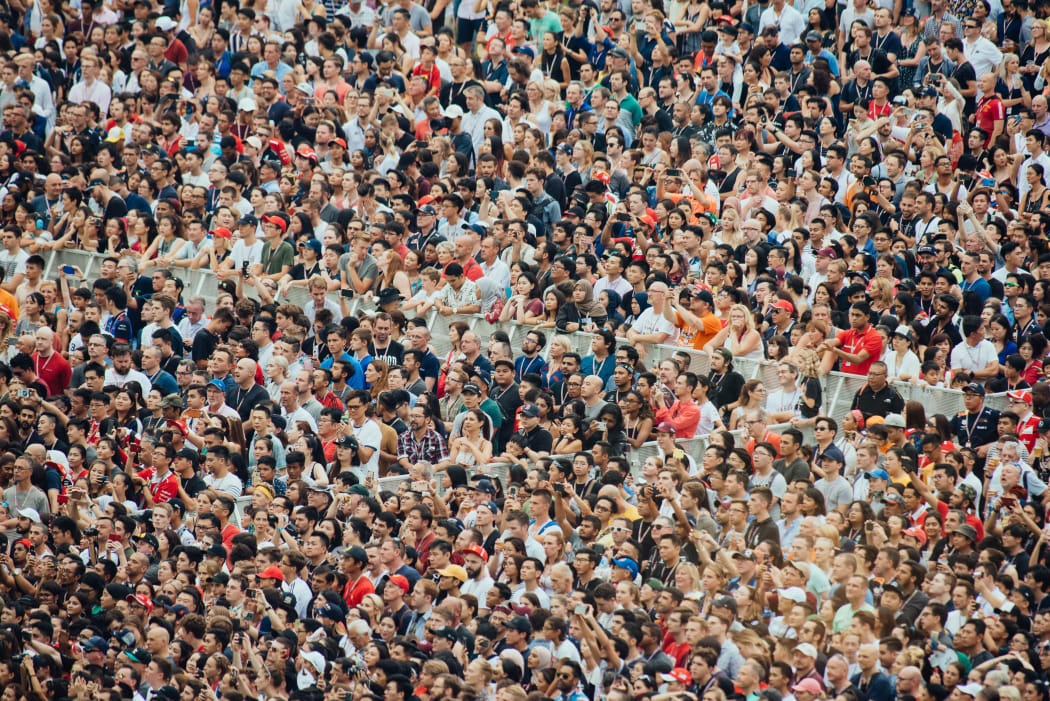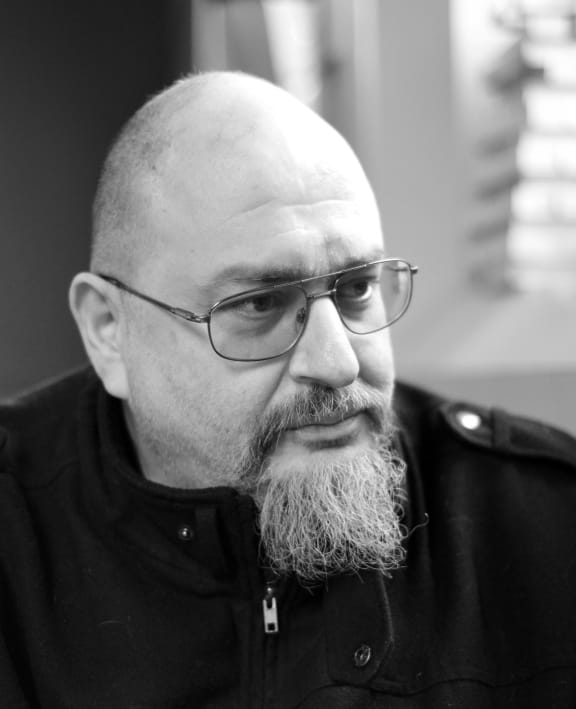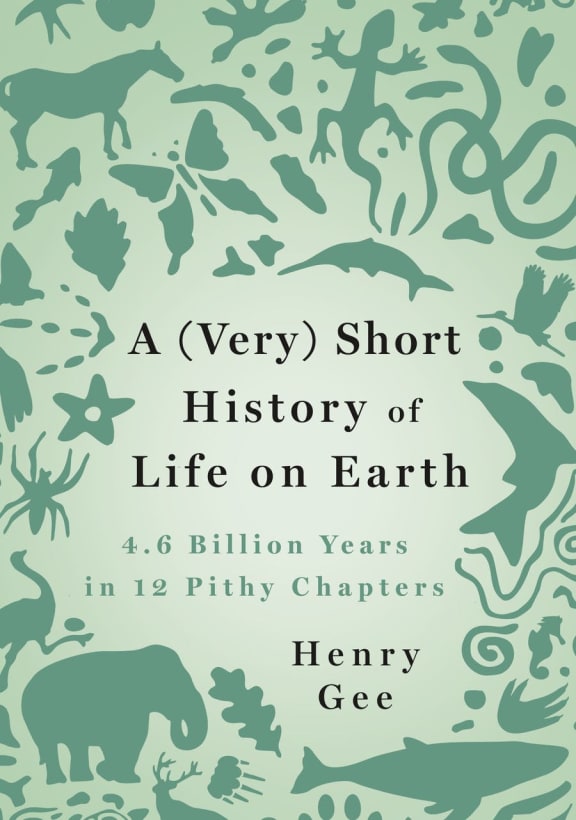Is humanity already a dead species walking?
British palaeontologist Henry Gee boldly tackles that question in his new book A (Very) Short History of Life on Earth.

Photo: Chuttersnap / Unsplash
Falling birth rates, pollution, lack of genetic variation and stress caused by overcrowded cities have the human species set not just for shrinkage, but collapse, Gee tells Jim Mora.
The publication of his book seems to have given "the entire world a case of the screaming abdabs", but he does believe the human species is doomed to extinction.
"Not immediately, so don't cancel Christmas for that reason. But within a few 100 to 1,000 years, maybe.”
“Quite soon” is another way to put it, Gee says.
“Mind you, I'm a palaeontologist so by 'soon' I mean hundreds or thousands of years. But soon for me.”

Henry Gee - British palaeontologist and evolutionary biologist and author of the new book A (Very) Short History of Life on Earth Photo: Supplied
The single biggest threat to our species is loss of habitat, he says, specifically, a phenomenon called extinction debt (the future extinction of species due to events in the past).
“If you imagine [the Earth as] a load of habitats, and [each species is in its own little patch of habitat]... Most [species] don't live in one continuous patch of habitat. They live in little patches that are spread out.
“You might find a butterfly that lives in a woodland, and it has to fly across the grassland to get to another piece of woodland.”
According to extinction debt theory, there are two kinds of species on this planet – dispersing species and dominant species.
“Dominant species tend to monopolise the habitat patch they’re in. Dispersal species tend to, when faced with dominant species, fly off to some other patch of habitat.
“But human beings occupy only one continuous patch of habitat - the earth - and we're dominant within it.”
Small ecological changes can have huge impacts on dominant species that stay in one area, Gee argued in the science journal Nature (of which he is the long-time editor).
“[My research] showed that when you have a dominant species in a patch of habitat, you only need a small amount of habitat degradation to condemn that species to a certain extinction, no matter what you do.”
The human species has amassed a huge debt, Gee says.
“Basically, a debt on the environment. And we're doomed. That's it, please, will the last person turn off the lights?”

Photo: Macmillan
Technological advances - such as the “Green Revolution” of the 1970s in which high-yielding crops were developed - have "basically saved the world from starvation", Gee says.
“What's to stop some other green revolution coming along and saving it?" he asks.
Scientists are now working to develop plants that are extra-efficient at photosynthesis, he says.
“When plants photosynthesise, they're very inefficient. A bit like old fashioned light bulbs, most of [their energy] just goes out as heat.
“There are various efforts to tweak plants genetically, to make them more photosynthetically productive.
“But the fact is, the first law of ecology is, there is no such thing as a free lunch. If plants could have been made more productive, evolution would have made them more productive.
“This suggests that there is some huge cost to making plants more productive, such as the viability of the plants or that [they become] very fussy.
“Or, as with the Green Revolution strains of wheat and rice, we have to use a lot of artificial fertilisers to keep them going.”
Although new energy sources are sometimes presented as our next potential saviour, Gee says, he remains sceptical.
“People say 'what we need is some new energy sources like nuclear fusion'. Well, I am of a certain age. And I remember going back to the year dot when people asked when nuclear fusion will be viable. Everyone said it would be viable in 30 years.
“I've been working as a science journalist for 34 years, and they still say it will be viable in 30 years. So, don't hold your breath there.”
Colonising space could possibly prolong our longevity, he says.
“Maybe we construct orbital habitats - in other words, establish more habitat patches, disperse into more habitat patches... become a disperser rather than a competitor.
“That could work for a bit, but I think what will eventually happen is the species will evolve and we won't be human anymore. We'll just be lots of little species evolving in different habitats that don't actually meet each other very often.”
Humans have made dizzyingly rapid technological progress in the last 200 years, Gee says.
“The first moon landing was in 1969, almost 50 years to the day after the first transatlantic crossing by an aeroplane, which was a contraption made out of bits of balsawood and string and lawnmower engines. Only 50 years separated those two events.”
But, despite these huge technological strides, Gee says we've already pushed the earth beyond its capacity to sustain us.
The fact that today's younger generations are doing less well economically than their parents did is evidence, he says.
“I think that's partly [due to the worldwide economic decline], which is ultimately [because] we're reaching the upper limits of what the Earth can provide for us.
“The population will go down, and that might put less strain on the environment but that decline has to be managed. And I think we will be able to manage it more effectively with a more educated workforce, which has been produced by about a century of female emancipation.
“So there's all sorts of pluses and minuses in all these things. I don't think there's any simple narrative that can be woven out of all this.”
Despite Gee's gloomy prognosis for humanity, the history of life on earth makes for an extraordinary tale, he says.
“It's such a great story and what I wanted to do with [A (Very) Short History of Life on Earth] was tell the story like a kind of bedtime story for grownups because I thought this is just fabulous.
“It's got villains and heroes and cliff-hangers and spectacular events, and victory pulled out of the jaws of defeat and tragedy and triumph - all you need is the love interest and you’re there. It's just such a great tale, and I just had to write it down.”
A Very Short History of Life on Earth is published by Macmillan.

